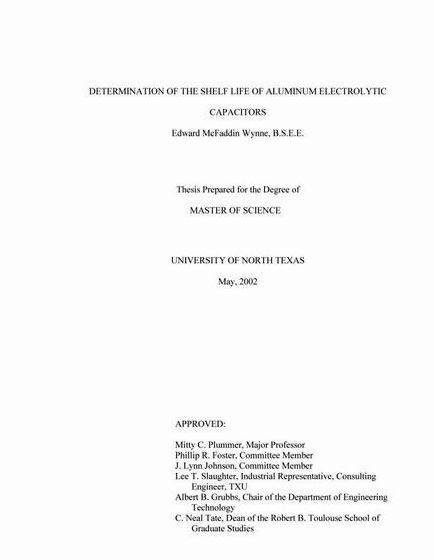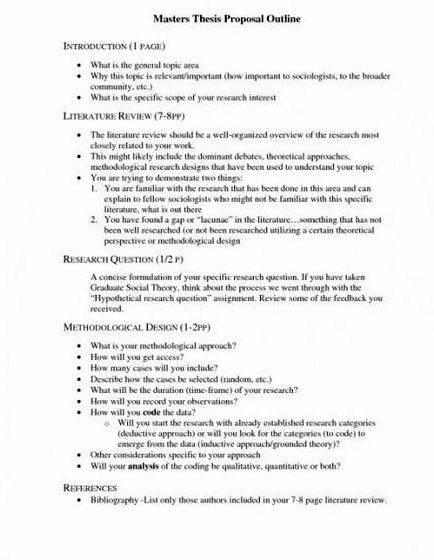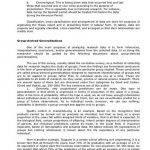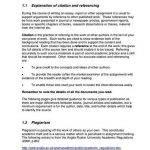A masters thesis. also called a master’s thesis. is an extensive writing project that many master’s degree programs require. The goal of most masters theses is to produce a work that adds a significant thought to or conducts a significant experiment for a given field. It usually takes a student a year to write a master’s thesis.
Because the project lasts so long and delves extensively into its topic, the student should select a topic that is interesting and engaging. The creative student may, upon beginning research, discover that the chosen topic presents such a new idea to the field that no directly relevant research currently exists. In that case, the student must create the research from scratch. He or she should begin research by reading everything available that relates even indirectly to the field of study; for example, if the student is studying a Mesopotamian text upon which no one else has written, he or she may read journal articles and books that deal with other ancient texts from that location, language, or time period. This is called secondary research, and it aids the student in developing a voice of credibility. Secondary research provides an education in the terms, issues, history, and research authorities that belong specifically to that field of study, and the student who becomes conversant in all these areas can begin to write a masters thesis that can sway the opinions of experts in the field.
Then, the student may progress to conducting primary research, which is the act of studying the subject itself and claiming the authority to draw conclusions about it. In a scientific field, this primary research will involve running one’s own experiments, and in a particularly innovative realm may even involve building one’s own equipment upon which to run the experiments.
Students who perform a full range of primary and secondary research and who organize that research in a persuasive, original way will produce masters theses that are strong, competent, and worthwhile.
Related posts:
- Masters Thesis Proposal A masters thesis proposal is a document that a masters candidate submits to his or her major professor for the.
- Masters Thesis Defense The masters thesis defense is the portion of the thesis project in which the student goes before a group of.
- Masters Thesis Format Masters thesis formats vary depending on the fields and departments to which they belong, but students may generally plan on.
- How to Write a Masters Thesis Sometimes students believe that they do not know how to write masters theses, when in reality they know perfectly well.
- Writing a Masters Thesis Writing a masters thesis is a complex task in which one must manage a great deal of research information and.
Thesis Submission Checklist
When turning in your thesis, please make sure to include the following:
- A signed cover page — original signature required
- A reader sheet. filled out by you and signed by your advisor — original signature required
- A second reader sheet with your name, ID, and department added, but the rest left blank (Draper provides the second reader)
- Your thesis abstract
- Your Draper Exit Questionnaire
Guidelines
To receive a master’s degree, the Draper Program and GSAS require that you successfully complete 32 points of course work and write a thesis.

Please read the below thoroughly; these guidelines explain the thesis-writing process and related graduation requirements. Draper also offers periodic workshops for thesis writers, listed on our News and Events page. If you then have further questions, please call the office at (212) 998-8070 or email draper.program[at]nyu.edu. To download a pdf of the thesis guidelines, please clickhere .
What is a master’s thesis?
The master’s thesis is a carefully argued scholarly paper of approximately 12,000 – 13,000 words (roughly 50 pages). It should present an original argument that is carefully documented from primary and/or secondary sources. The thesis must have a substantial research component and a focus that falls within arts and science, and it must be written under the guidance of an advisor. As the final element in the master’s degree, the thesis gives the student an opportunity to demonstrate expertise in the chosen research area.
When should I start thinking about the thesis?
You should be thinking about your thesis, if only abstractly, from your first enrollment in the Draper Program. At the latest, you should have a clear idea of your topic and have found an advisor by the end of the semester before the one in which you will complete the thesis (see the timetable and deadlines chart, below).
Who can be my advisor?
Any regular NYU faculty member can be your thesis advisor, although individual faculty are not required to advise master’s theses. It is your responsibility to find an advisor. Your advisor will provide general guidance, and will help you refine your topic and develop your argument. Most students choose faculty members they have worked with in courses. Thesis advisors must be approved by the Program (along with the thesis topic).
What is the process and protocol?
After doing the initial research on your topic, prepare a 1-2 paragraph abstract, a preliminary bibliography (approximately ten to fifteen books or journal articles), and a brief outline before approaching a possible advisor. These will help you to convince your future advisor of the value and interest of your project. Once a faculty member has agreed to advise you, discuss your anticipated graduation date and agree on a timetable for meetings and submission of drafts. It is your responsibility to keep your advisor apprised of your progress.
After you have refined your topic and your advisor has approved it, complete the Application for Approval of Master’s Thesis Topic. have your advisor sign it, and submit it to the Draper offices. This form must be submitted by the thesis due date for the semester before the one in which you intend to graduate (e.g. December 16 for May graduation; see the chart, below). We will notify you via email when your topic has been approved by Draper. Do not start writing the thesis until you have an advisor who has approved your topic.
In most cases, students and advisors need to meet three or four times: initially, to finalize a topic, and to review the first or second draft. Keep in mind that your advisor must have enough time to read and evaluate your work before returning it to you with comments, and that you must have time to incorporate those comments. Don’t expect your advisor to return your thesis in a day or two, whether it is an early draft or the final copy. It is appropriate to ask your advisor when you can expect comments, but not to pressure her or him to respond quickly. You should also be prepared for the possibility that your advisor will request substantial changes in the thesis. Do not expect that your draft will require only minor corrections, or that the proposed final version you submit will necessarily be approved without further changes. It is your responsibility to see that the final copy is free from spelling and grammatical errors; your advisor is not responsible for line-by-line editing.
HUMAN SUBJECT RESEARCH
Theses involving interviews, surveys, or other research on human subjects often require prior approval. Because approval can take time, you should begin the application process as early as possible. Further information is available at nyu.edu/ucaihs/ or from the Office of Sponsored Programs, 212-998-2121.
Are there particular thesis formatting requirements?
- Yes, theses must conform to the following guidelines:
- The cover page must include the thesis title, your name, and your student ID number; your advisor’s name and a space for her or his approval signature; the month and year the degree will be conferred (not the month in which the thesis is submitted); and the statement: “A thesis in the John W. Draper Interdisciplinary Master’s Program in Humanities and Social Thought in partial fulfillment of the requirements for the degree of Master of Arts at New York University” (a sample cover page can be found here ).
- All sources for quotations and paraphrases must be documented. You may use any of the standard citation styles (MLA, Chicago, social science, etc.), subject to your advisor’s approval, provided you consistently follow a single style throughout the thesis.
- The thesis should be printed or typewritten on standard paper.
- We prefer unbound theses — a simple binder clip is sufficient. If you decide to bind your thesis, please make sure that your original, signed cover page is unbound.
What are the administrative requirements to graduate?
You must be enrolled in the semester in which you graduate, which means you must either take a course or maintain matriculation. Matriculation is not required during the summer term. You must also apply for graduation (set your graduation date) using Albert (albert.nyu.edu ) within the period the Registrar has specified for that semester (see nyu.edu/registrar/graduation/apply.html ).
How do I submit the thesis?
You must first give a clean copy of the finished thesis to your advisor. After your advisor has read and approved the thesis, it is your responsibility to submit the final copy, signed by your advisor on the cover page, to the Draper Program by the deadline listed below. You must also submit two Thesis Reader Sheets (one signed by your advisor, one blank), a thesis abstract, and the Draper Exit Questionnaire. Your advisor is the first reader and the Program will provide a second reader, usually the director or associate director. Students must have met all graduation requirements, including timely submission of the thesis, to participate in commencement ceremonies.
What happens after that?
Draper will assign your second reader, generally one of our directors. Once your thesis has been countersigned by the second reader, we will file the necessary paperwork with the registrar’s office and they will process your graduation. This series of steps takes approximately one month. Once your degree has been conferred, you will see it appear at the top of your online transcript. Eight weeks after that, the registrar will mail your diploma to you, so please be sure that your mailing address is correct in Albert. If you do not receive your diploma and request a new one, it will incur a fee.
What is a typical thesis-writing timetable?
Begin research; prepare abstract, bibliography, and outline.





 Phd comics thesis writing progress
Phd comics thesis writing progress Justification of the study in thesis writing
Justification of the study in thesis writing Library kku ac th thesis writing
Library kku ac th thesis writing Harvard style of reference writing for thesis
Harvard style of reference writing for thesis Niall ferguson war of the world thesis writing
Niall ferguson war of the world thesis writing






